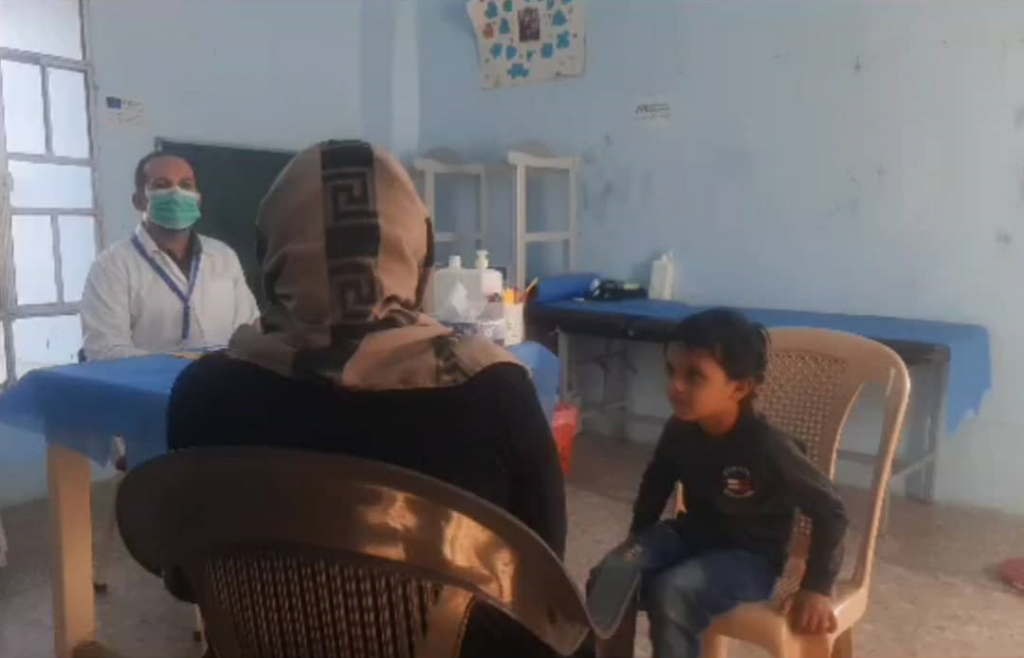The Syrian conflict has been characterized by great difficulties and suffering on both sides. The healthcare system is under extreme strain due to conflict, which has left many communities with no access to basic medical services.
Despite these hardships, support from International Medical Corps has been essential in providing people with the health-related services they need, ensuring that those affected by the crisis can access essential healthcare services.
Abdul Hadi Atta Al-Sabti, was born in the Al-Mesmieh sub-district of Daraa governorate in southern Syria in 2019. His parents were deeply concerned about their child, as he struggled with and suffered from recurrent seizures that affected his development.
One of our mobile medical teams (MMTs) in Daraa governorate visits Al-Mesmieh three days a week. In April 2023, Abdul Hadi was brought to the pediatric clinic with a history of recurrent seizures without fever. Dr. Mouhammad Amin Al Najjar, the pediatrician in MMT1, conducted a careful clinical evaluation of Abdul Hadi during his first visit.
Because Abdul Hadi already was on an anticonvulsant treatment without a clear diagnosis and was showing no improvement, the International Medical Corps Damascus office made a referral for a neurological consultation. An encephalogram revealed gaps in the right cerebral hemisphere, especially in the temporal region. This led to an MRI of the brain, which showed a slight reduction in the size of the corpus callosum with hardening of the hippocampus on both sides, leading to the diagnosis of focal cortical dysplasia—a rare disease.
Based on the diagnosis, Abdul Hadi was placed on treatment with specific anticonvulsants, resulting in almost complete remission of the seizures and a notable improvement in his development. The team conducted monthly evaluations through December 2023 to monitor the child’s progress and overall well-being, and have determined that his treatment should continue.

